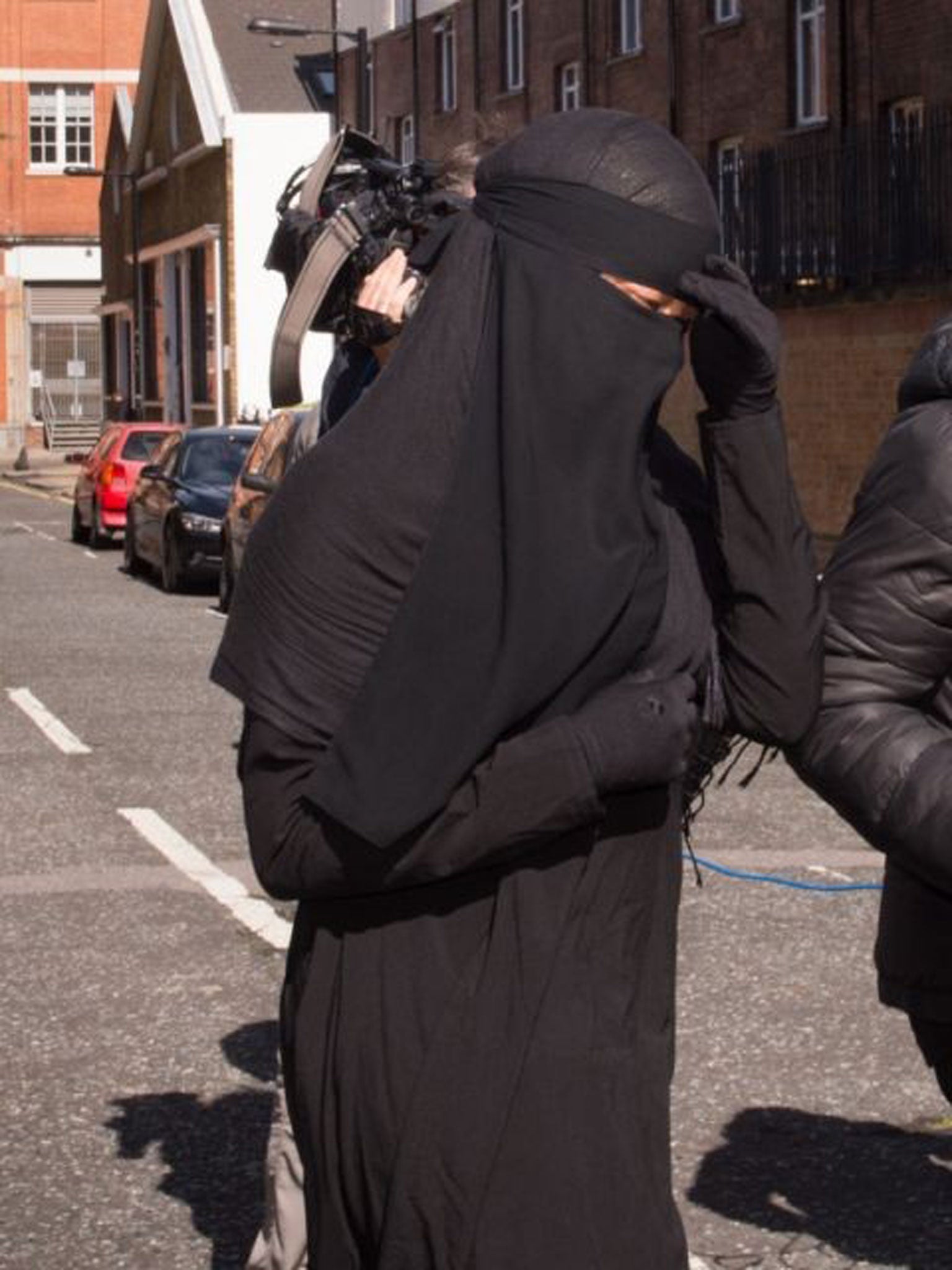A veiled threat to race relations? Judge rules that woman must remove niqab to give evidence during trial
Lawyers argue removing veil would breach her human rights

Britain's leading Muslim organisation warned tonight that a judge's landmark ruling that women should not give evidence in court whilst wearing the veil threatened to undermine the nation's long-standing tradition of religious tolerance.
Amid warnings by the Muslim Council of Britain of an increasingly "hysterical" debate on the niqab, Judge Peter Murphy concluded that a female defendant would be allowed to attend court whilst wearing the Islamic face covering but would not be permitted to take the witness stand unless she removed it.
Judge Murphy also laid down the gauntlet to Parliament and the higher courts to provide a "definitive statement" on Muslim dress codes which he said were fully compatible with participation in public life and not a form of repression against women.
However, he said that the human rights of the 22-year-old, who has worn the niqab since May 2012, were secondary to the requirement that a judge and jury see a defendant's face whilst they gave evidence in court.
"That is not a discrimination against religion. It is a matter of upholding the rule of law in a democratic society," he said.
The woman's lawyers are now considering whether to seek a judicial review on the ban.
The Muslim Council called for calm on the subject and said it recognised that the judge had attempted to balance the woman’s religious rights with the needs of the court.
Talat Ahmed, chair of the council's social and family affairs committee said: "Every time we discuss the niqab, it usually comes with a diet of bigoted commentary about our faith and the place of Islam in Britain. There are few people who wear the niqab, and they should be allowed to wear this veil if they freely decide to do so."
She said that banning the garment was "un-British" and would "involve embarking on a slippery slope where the freedom to wear religious attire of all faiths would be at risk."
In his 35-page ruling Judge Murphy, sitting at Blackfriars Crown Court, said he had sought to take the "least restrictive approach" to dealing with the issue.
The woman denies attempting to intimidate a witness. The judge had earlier refused to allow her to enter a plea unless she removed her veil but last week climbed down pending yesterday's ruling.
When she stands trial in November the court will be adjourned and cleared to allow her to identify herself to a female court officer. When she gives evidence with her face uncovered she will be allowed to do so from behind a screen or via video-link so that she will not be on view.
The judge also took the unusual step of banning court drawings - a move which is likely to be challenged by media groups.
If the woman refuses to remove the veil she will not be permitted to testify.
Judge Murphy said he did not doubt the defendant's sincerity in wearing the garment.
"The niqab is worn by choice by many spiritually-minded, thoughtful and intelligent women, who do not deserve to be demeaned by superficial and uninformed criticisms of their choice," he said.
Former Director of Public Prosecutions Lord Macdonald had earlier said that it was "unarguable" that Muslim women should be banned from wearing a veil while in court on trial.
Home Office minister Jeremy Browne called for a national debate on the issue which follows the decision of college in Birmingham to reverse its decision that a female student remove her veil whilst attending.
Deputy Prime Minister Nick Clegg repeated his opposition to a ban yesterday whilst David Cameron said it was up to into individual establishments to set their own dress codes. A Private Members Bill currently before Parliament that would outlaw the wearing of the niqab in a public place is unlikely to become law.
But Keith Porteous Wood, executive director of the National Secular Society, said the judge was wrong to allow the woman to attend court with her face covered. The organisation is set to raise the matter with the Office of Judicial Complaints demanding that all participants in a trial can be clearly seen.
"It is vital that defendants' faces are visible at all times, including while others are giving evidence, so we regret the judge's decision not to require this," he said.
However, Shami Chakrabarti, director of civil rights group Liberty, welcomed the judge's ruling.
"He has shown a sensitivity and clarity that can only further build confidence in our courts in Britain's diverse communities and around the world," she said.
Judge’s comments
I reject the view, which has its adherents among the public and the press, that the niqab is somehow incompatible with participation in public life in England and Wales; or is nothing more than a form of abuse, imposed under the guise of religion, on women by men. There may be individual cases where that is true. But the niqab is worn by choice by many spiritually-minded, thoughtful and intelligent women, who do not deserve to be demeaned by superficial and uninformed criticisms of their choice.
Balancing the right of religious manifestation against the rights and freedoms of the public, the press, and other interested parties such as the complainant in the proper administration of justice, the latter must prevail over (the defendant’s) right to manifest her religion or belief during the proceedings against her to the extent necessary in the interests of justice. No tradition or practice, whether religious or otherwise, can claim to occupy such a privileged position that the rule of law, open justice, and the adversarial trial process are sacrificed to accommodate it. That is not a discrimination against religion. It is a matter of upholding the rule of law in a democratic society.